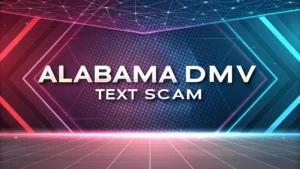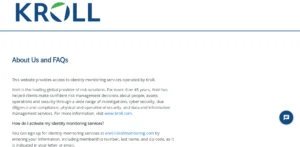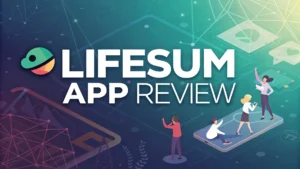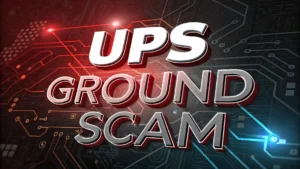Have you seen those tempting Facebook ads promising a trendy Bogg bag for just $10? These ads claim you only need to complete a quick Target survey to snag this amazing deal.
The reality is shocking. These surveys are completely fake and designed to steal your personal information. Scammers are using Target’s trusted brand name and the popularity of Bogg bags to trick unsuspecting shoppers.
This comprehensive guide will reveal everything you need to know about these scams. You will learn how to spot fake surveys, protect your personal information, and find legitimate ways to save money on popular products like Bogg bags.
Key Takeaways
- The Target Bogg bag survey offering $10 bags is a complete scam designed to steal personal information and potentially commit fraud
- Target does not offer official surveys for discounted Bogg bags through social media ads or unsolicited messages
- Warning signs include unrealistic pricing, urgency tactics, and requests for sensitive information like credit card details or Social Security numbers
- Legitimate surveys never ask for payment information upfront or promise expensive items for minimal effort
- Always verify survey authenticity through official company websites before providing any personal details
What Is the Target Bogg Bag Survey Scam
The Target Bogg bag survey scam represents one of the most widespread online fraud schemes targeting bargain hunters. Scammers create fake advertisements that appear on Facebook, Instagram, and other social media platforms. These ads promise customers can purchase authentic Bogg bags for just $10 by completing a simple Target customer satisfaction survey.
The scam works by exploiting the popularity of Bogg bags, which are trendy waterproof tote bags that normally retail for $60 to $100. Fraudsters know that consumers love getting deals on these coveted accessories. They create professional looking ads that use Target’s logo, colors, and branding to appear legitimate.
When victims click on these ads, they get redirected to fake websites that look like official Target survey pages. These sites ask users to answer basic questions about their shopping experience. However, the real purpose is to collect personal information including names, addresses, phone numbers, and email addresses.
The most dangerous part comes at the end of the fake survey. Victims are asked to pay a small “processing fee” or “shipping charge” using their credit card. This is where scammers steal financial information that can be used for unauthorized purchases and identity theft.
How Scammers Create Convincing Fake Surveys
Creating believable fake surveys has become easier with modern technology. Scammers use several sophisticated techniques to make their surveys appear legitimate and trustworthy to potential victims.
Professional website design is the first tool scammers use. They copy Target’s official colors, fonts, and logo design to create websites that look identical to real Target pages. Many victims cannot tell the difference between these fake sites and the actual Target website.
Scammers also use social proof tactics to build credibility. They create fake testimonials from supposed customers who claim they successfully received their discounted Bogg bags. These testimonials often include stock photos of happy people with their bags.
The survey questions themselves are designed to seem realistic. Scammers ask about shopping frequency, favorite Target departments, and recent purchases. These questions mirror what legitimate customer satisfaction surveys might ask, making the scam more believable.
Urgency tactics create pressure for victims to act quickly. Fake surveys often include countdown timers claiming the offer expires in hours or minutes. They may also display fake inventory numbers showing only a few bags remain at the discounted price.
Red Flags That Reveal Survey Scams
Learning to identify survey scam warning signs can protect you from becoming a victim. Several clear red flags indicate when a survey is fake and potentially dangerous.
Unrealistic pricing is the biggest warning sign. When surveys offer expensive items like Bogg bags for extremely low prices, you should be immediately suspicious. No legitimate company would sell $100 bags for $10 just for completing a survey.
Requests for sensitive personal information are another major red flag. Legitimate surveys might ask for basic demographic information, but they never request Social Security numbers, credit card details, or banking information.
Poor grammar and spelling often reveal fake surveys. Scammers frequently operate from overseas and may not have perfect English writing skills. Look for awkward phrasing, misspelled words, and grammatical errors that legitimate companies would never publish.
Pressure to act immediately indicates a scam. Real surveys do not expire in minutes or hours. Legitimate companies give customers reasonable time to complete surveys without creating artificial urgency.
Unsolicited survey invitations arriving through text messages, emails, or social media ads should raise suspicion. Most legitimate surveys are sent to existing customers through official company communication channels.
Target’s Official Position on Survey Scams
Target takes survey scams seriously and actively works to protect customers from these fraudulent schemes. The company has published official warnings about fake surveys using their brand name and logo.
According to Target’s security website, scammers frequently use the Target brand to trick customers into sharing sensitive information. The company explicitly states that these survey scams are designed to collect usernames, passwords, account numbers, and other personally identifiable information.
Target’s official fraud prevention team monitors social media platforms for fake advertisements using their branding. When they discover these scams, they report them to the platforms for removal. However, new scam ads appear constantly, making this an ongoing battle.
Legitimate Target surveys are sent directly to customers through official email addresses or appear on printed receipts after purchases. The company does not offer significant discounts on popular products through unsolicited social media surveys.
If you receive a suspicious survey claiming to be from Target, the company recommends reporting it to their security team at abuse@target.com. They also advise customers to never provide personal or financial information through unsolicited survey requests.
How the Bogg Bag Scam Specifically Works
The Bogg bag survey scam follows a predictable pattern that helps scammers maximize their success rate. Understanding this pattern can help you recognize and avoid these schemes.
Step one involves the initial advertisement on social media platforms. Scammers create eye catching posts featuring attractive images of Bogg bags with text promising incredible discounts. These ads target users who have shown interest in shopping, fashion, or Target products.
When users click the ad, step two redirects them to a fake survey website. This site looks professional and includes Target branding to establish credibility. The survey begins with innocent questions about shopping habits and preferences.
Step three introduces the product offer after users complete several survey questions. The fake survey claims they have been selected for a special promotion offering Bogg bags at drastically reduced prices. This creates excitement and motivation to continue.
The final step requires payment information for processing fees. Scammers claim customers must pay small shipping or handling charges to receive their discounted bags. This is where they steal credit card information for fraudulent purchases.
Victims who complete the entire process never receive any products. Instead, they may see unauthorized charges on their credit cards and become targets for additional scam attempts using their stolen information.
Legitimate Ways Target Conducts Customer Research
Understanding how Target actually conducts customer research helps distinguish real surveys from fake ones. The company uses several legitimate methods to gather customer feedback and opinions.
Receipt based surveys are Target’s most common customer research method. After making purchases, customers find survey invitations printed on their receipts. These surveys ask about the shopping experience and offer small rewards like discount coupons.
Target also sends email surveys to registered customers who have opted in to receive communications. These emails come from official Target addresses and never ask for sensitive personal information beyond basic demographics.
The company operates a product testing program called Hey Bullseye where selected customers receive free products in exchange for honest reviews. This program requires application through Target’s official website and includes proper verification processes.
Focus groups and market research studies are conducted by professional research companies working with Target. These studies involve in person or video call sessions with compensation provided through legitimate payment methods.
All legitimate Target research includes clear privacy policies explaining how customer information will be used. Participants can verify authenticity by contacting Target customer service directly through official phone numbers or website contact forms.
Warning Signs of Survey Fraud Beyond Target
Survey scams extend far beyond fake Target promotions. Learning general warning signs helps protect you from various types of survey fraud regardless of the company being impersonated.
Excessive rewards for minimal effort indicate potential scams. Legitimate surveys typically offer modest compensation like small gift cards or entry into prize drawings. Offers of expensive electronics or luxury items for quick surveys are usually fraudulent.
Requests for upfront payments reveal scam surveys immediately. Real surveys pay participants rather than requiring payment. Any survey asking for credit card information, processing fees, or shipping charges should be avoided completely.
Lack of company contact information is another warning sign. Legitimate surveys include clear contact details for the research company or organization conducting the study. Fake surveys often provide no way to verify their authenticity.
Aggressive marketing tactics suggest fraudulent intent. Scam surveys frequently appear through popup ads, spam emails, or unsolicited text messages. Legitimate research companies use more professional recruitment methods.
Survey scams may also request excessive personal information beyond what research purposes require. While legitimate surveys might ask for basic demographics, requests for Social Security numbers, bank account details, or passwords indicate fraud.
How to Verify Survey Authenticity
Taking simple verification steps before participating in any survey can protect you from fraud and identity theft. These methods help confirm whether survey opportunities are legitimate or potentially dangerous.
Contact the company directly through official customer service channels to verify survey authenticity. Use phone numbers or email addresses from the company’s official website rather than contact information provided in the survey invitation.
Check the survey website URL carefully for signs of fraud. Legitimate surveys use official company domains or well known research company websites. Fake surveys often use suspicious URLs with misspellings or unusual domain extensions.
Research the survey company online to learn about their reputation and business practices. Legitimate market research companies have established websites, positive reviews, and clear information about their services.
Review privacy policies and terms before providing any personal information. Legitimate surveys explain how your data will be used and provide options for opting out of future communications.
Look for professional design and content quality in survey materials. Real surveys use proper grammar, professional formatting, and consistent branding. Poor quality content often indicates fraudulent operations.
Steps to Take If You Fall Victim
Despite taking precautions, some people still fall victim to survey scams. Acting quickly after realizing you have been scammed can minimize potential damage and protect your financial accounts.
Contact your bank or credit card company immediately if you provided financial information to a scam survey. Report the fraudulent website and request new cards with different numbers. Monitor your accounts closely for unauthorized charges.
Change passwords for online accounts that might have been compromised. This includes email accounts, social media profiles, and shopping websites where you use the same login credentials.
File complaints with appropriate authorities to help prevent others from becoming victims. Report the scam to the Federal Trade Commission, your state attorney general, and the company whose brand was impersonated.
Monitor your credit reports for signs of identity theft in the weeks and months following the incident. Consider placing fraud alerts on your credit files to make it harder for scammers to open new accounts in your name.
Document all evidence of the scam including screenshots, emails, and website URLs. This information can be helpful for law enforcement investigations and may be required for insurance claims or credit dispute processes.
Protecting Your Personal Information Online
Developing good online security habits protects you from survey scams and many other types of internet fraud. These practices create barriers that make it harder for scammers to access your personal information.
Use strong, unique passwords for all online accounts and enable two factor authentication whenever possible. This prevents scammers from accessing your accounts even if they obtain one set of login credentials.
Be cautious about sharing personal information on social media platforms. Scammers use publicly available information to make their schemes more convincing and targeted to individual victims.
Keep software and security systems updated on all devices you use for internet access. Updated security software can detect and block many types of fraudulent websites and malicious downloads.
Educate family members about common scam tactics, especially older adults and teenagers who may be more vulnerable to certain types of fraud. Share information about warning signs and verification methods.
Review privacy settings on social media accounts to limit the amount of personal information visible to strangers. This reduces the information available to scammers for creating targeted attacks.
Alternative Ways to Save on Bogg Bags
Rather than falling for scam surveys, several legitimate methods can help you save money on authentic Bogg bags and similar products.
Shop during official sales events at authorized retailers like Target, Amazon, and the official Bogg bag website. These retailers occasionally offer genuine discounts during holiday sales and clearance events.
Sign up for retailer newsletters to receive notifications about upcoming sales and promotional codes. Many stores offer exclusive discounts to email subscribers that can provide real savings on popular products.
Use cashback credit cards and shopping apps that provide rebates on purchases from participating retailers. These programs offer modest but legitimate savings without requiring participation in surveys.
Check discount stores and outlet retailers that sometimes carry designer bags at reduced prices. While selection may be limited, you might find genuine Bogg bags or similar alternatives at lower costs.
Consider similar products from other brands that offer comparable quality and style at lower price points. Many companies make waterproof tote bags with features similar to Bogg bags but at more affordable prices.
Frequently Asked Questions
Is the $10 Target Bogg bag survey legitimate?
No, any survey offering Bogg bags for $10 through Target is a scam designed to steal personal information.
How can I tell if a Target survey is real?
Legitimate Target surveys appear on receipts or come through official email addresses, never through social media ads.
What should I do if I completed a fake survey?
Contact your bank immediately, change passwords, and report the scam to authorities like the FTC.
Does Target really give away expensive products for surveys?
No, Target does not offer expensive items like Bogg bags through social media surveys or unsolicited messages.
Where can I find legitimate Bogg bag discounts?
Check official retailers, authorized dealers, and the Bogg bag website during legitimate sales events.
How do scammers make fake surveys look real?
They copy official branding, use professional website design, and create fake testimonials to appear legitimate.
Can survey scams steal my identity?
Yes, providing personal information to fake surveys can lead to identity theft and financial fraud.
What information should legitimate surveys never ask for?
Real surveys never request Social Security numbers, credit card details, banking information, or passwords.
The Target Bogg bag survey scam represents a serious threat to online shoppers seeking bargains on popular products. By understanding how these scams work and learning to identify warning signs, you can protect yourself from becoming a victim. Remember that legitimate companies like Target do not offer expensive products at unrealistic discounts through unsolicited surveys. When deals seem too good to be true, they usually are. Stay vigilant, verify authenticity through official channels, and report suspected scams to help protect other consumers from fraud.



























